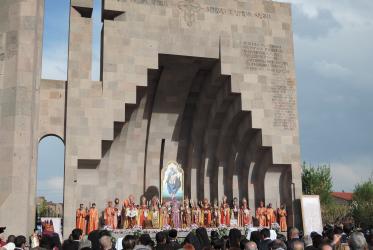Displaying 41 - 60 of 83
Reflections on the destruction of the Armenian church in Deir Zor
05 November 2014
Press conference on Syria crisis to be held in Geneva
19 September 2013
Exhibition in Geneva raises awareness of Armenian genocide
06 September 2013

